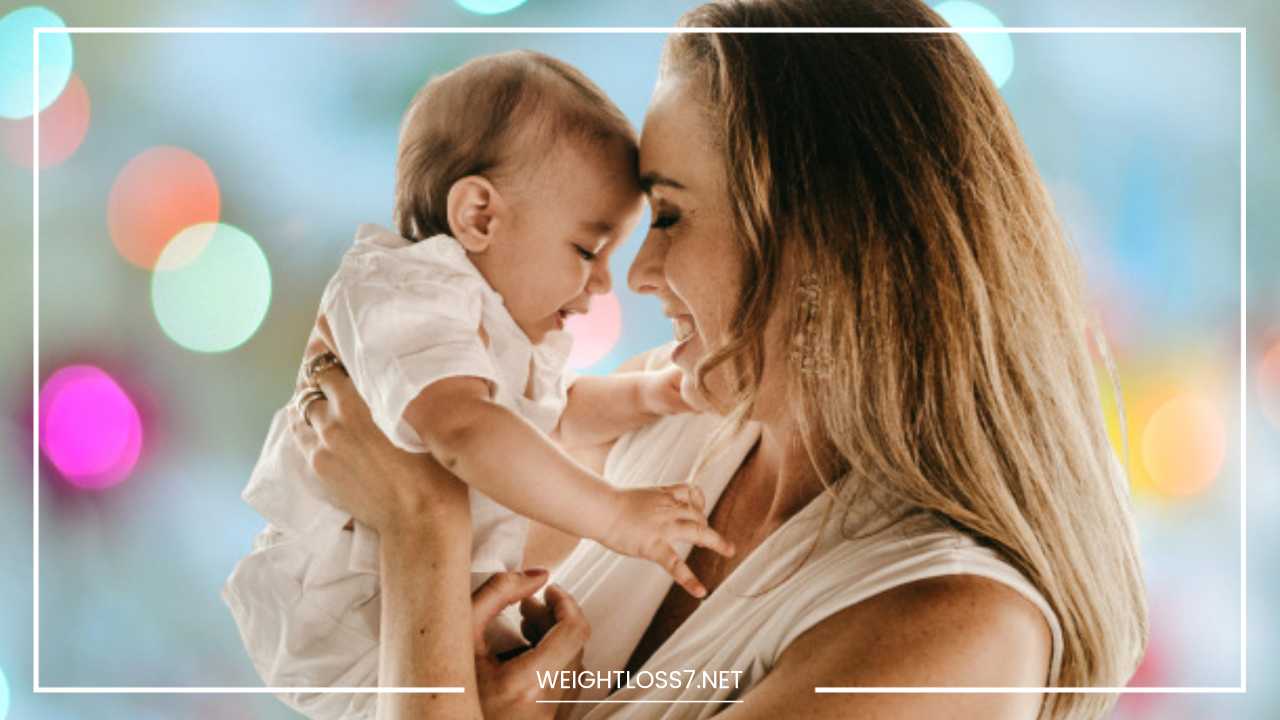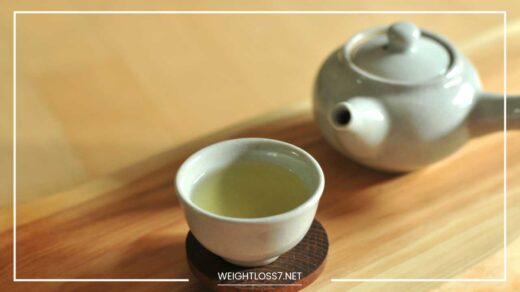How to Lose Weight While Breastfeeding: A Practical Guide for New Moms

How to Lose Weight While Breastfeeding
Losing weight after pregnancy can be a common goal for many new mothers. However, when you are breastfeeding, it’s crucial to approach weight loss with caution and prioritize both your health and your baby’s needs.
Losing weight while breastfeeding requires a balanced and gradual approach to ensure you are providing enough nourishment for your baby while also achieving your weight loss goals.
In this weight loss article, we will explore safe and effective ways to lose weight while breastfeeding, without compromising your milk supply or your health.
Understanding the Importance of Breastfeeding
Before diving into weight loss strategies, it’s essential to acknowledge the importance of breastfeeding for both you and your baby.
Breast milk provides essential nutrients and antibodies that help your baby grow and develop, boost their immune system, and establish a strong mother-baby bond.
Breastfeeding also has numerous health benefits for mothers, including a reduced risk of postpartum depression, lower risk of certain diseases, and helps in postpartum weight loss.
However, it’s important to note that breastfeeding can burn extra calories, which can aid in weight loss over time.
According to the American College of Obstetricians and Gynecologists (ACOG), breastfeeding can help women lose some of the weight gained during pregnancy. Nonetheless, it’s crucial to approach weight loss while breastfeeding mindfully.
Consult with a Healthcare Professional
Before embarking on any weight loss journey while breastfeeding, consult with your healthcare provider. They can assess your current health, provide guidance tailored to your unique circumstances, and help you establish realistic weight loss goals.
Your healthcare provider will also monitor your baby’s growth to ensure they are receiving adequate nutrition.
Focus on Nutrient-Rich Foods
Instead of drastically cutting calories, focus on eating nutrient-dense foods. Your body requires extra nutrients during breastfeeding to produce milk and maintain your health.
Aim to include a variety of fruits, vegetables, lean proteins, whole grains, and healthy fats in your diet. These foods will provide essential vitamins and minerals while promoting gradual and sustainable weight loss.
Stay Hydrated
Proper hydration is essential for both milk production and weight loss. Drinking enough water can also help control hunger and prevent overeating. Aim to consume at least 8-10 cups of water daily, or more if you’re particularly active or in hot weather.
Practice Portion Control
Portion control is key to managing your calorie intake. While breastfeeding, it’s essential to maintain a balance between providing enough nourishment for your baby and controlling your calorie intake to lose weight.
Use smaller plates and be mindful of portion sizes to avoid overeating.
Prioritize Healthy Snacking
Snacking can be a significant part of your daily intake. Opt for healthy snacks like nuts, yogurt, and fruits to keep your energy levels stable and prevent excessive hunger that might lead to poor food choices.
Gradual Weight Loss
Aim for gradual weight loss rather than quick fixes. Losing about 1-2 pounds per week is a safe and sustainable rate. This approach is less likely to affect your milk supply and allows your body to adjust gradually to the changes.
Include Exercise Wisely
Incorporating exercise into your routine can help with weight loss and overall health. However, it’s essential to choose activities that are safe for both you and your baby.
Low-impact exercises such as walking, swimming, and postpartum yoga can be excellent choices. Start slowly and consult with your healthcare provider before beginning any new exercise regimen.
Breastfeed On-Demand
Breastfeeding on-demand, meaning allowing your baby to feed whenever they are hungry, can help maintain your milk supply while also naturally burning calories.
This approach ensures that your baby receives the necessary nutrients and promotes bonding.
Get Adequate Sleep
Lack of sleep can lead to weight gain and make it more challenging to lose weight. Try to get enough rest whenever possible, even if it means napping during the day while your baby sleeps.
Be Patient and Kind to Yourself
Remember that it took nine months to gain the pregnancy weight, so it’s entirely normal for it to take time to lose it. Be patient with yourself and focus on your health and your baby’s well-being rather than rushing the process.
Final Remarks
Losing weight while breastfeeding is possible, but it requires a balanced and patient approach. Prioritize your health and your baby’s well-being by consulting with a healthcare professional, eating nutrient-rich foods, staying hydrated, and gradually incorporating exercise.
Remember that every woman’s journey is unique, and it’s essential to be kind to yourself throughout the process.
By following these guidelines, you can achieve your weight loss goals while providing the best possible care for your baby.
Here’s a FAQ section to address some common questions related to losing weight while breastfeeding:
FAQ: Losing Weight While Breastfeeding
1. Is it safe to try to lose weight while breastfeeding?
- Yes, it’s generally safe to aim for gradual weight loss while breastfeeding. However, it’s essential to consult with your healthcare provider before starting any weight loss plan to ensure it’s appropriate for your individual circumstances.
2. How many extra calories does breastfeeding burn?
- Breastfeeding can burn approximately 300-500 calories per day, depending on factors like how often you breastfeed and your baby’s age and size. This can contribute to gradual weight loss over time.
3. Can dieting affect my milk supply?
- Drastic calorie restriction or extreme diets can potentially reduce milk supply. It’s crucial to prioritize nutrient-dense foods and gradual weight loss to minimize the risk of negatively impacting your milk production.
4. What are some nutrient-dense foods I should include in my diet while breastfeeding and trying to lose weight?
- Focus on incorporating fruits, vegetables, lean proteins, whole grains, and healthy fats into your diet. These foods provide essential vitamins and minerals for both you and your baby.
5. Should I avoid certain foods while breastfeeding for weight loss?
- Avoid overly restrictive diets and instead opt for balance and moderation. While you should limit processed and sugary foods, it’s generally fine to enjoy a variety of foods in moderation, even some treats, as long as they fit into your overall calorie and nutrient goals.
6. How can I prevent overeating during breastfeeding?
- Pay attention to your body’s hunger and fullness cues. Eating mindfully, using smaller plates, and having healthy snacks on hand can help prevent overeating.
7. Can I start exercising while breastfeeding, and will it affect my milk supply?
- You can start exercising gradually while breastfeeding. Low-impact exercises such as walking and postpartum yoga are good options. Consult with your healthcare provider and listen to your body. In most cases, moderate exercise won’t negatively impact your milk supply.
8. What’s a safe rate of weight loss while breastfeeding?
- A safe and sustainable rate of weight loss is around 1-2 pounds per week. This rate is less likely to affect your milk supply and allows your body to adjust gradually.
9. How can I ensure my baby receives enough nutrition while I’m trying to lose weight?
- Breastfeed on-demand, and focus on a well-balanced diet. Ensure you are meeting your baby’s needs by monitoring their growth and consulting with a lactation consultant or healthcare provider if you have concerns.
10. How long will it take to reach my weight loss goals while breastfeeding?
- The time it takes to reach your weight loss goals can vary greatly from person to person. Be patient and realistic, as it may take several months to a year or more to achieve your desired weight.
Remember that every woman’s experience is unique, and it’s essential to seek personalized guidance from a healthcare professional when making decisions about weight loss while breastfeeding. Prioritizing your health and your baby’s well-being should always be the primary focus.

















